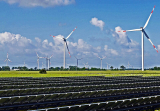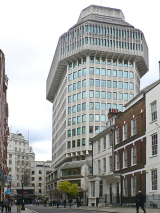
Britain and the European Union on Thursday broke up their latest round of post-Brexit trade negotiations by ruling out a quick deal but voicing hope for agreement in the coming months.
Prime Minister Boris Johnson had hoped an outline agreement could be reached before the end of this month, calling for "a bit of oomph" to be added to the stuttering talks.
But both his chief negotiator and his EU counterpart said that was unlikely, given continued wrangling over major areas such as fishing rights and fair competition rules.
He accused the EU of failing to recognise Britain's economic and political independence on the main issues, describing the gulf between the two sides on those points as "considerable".
Frost's opposite number, Michel Barnier, criticised London for refusing to move on its red lines, and not showing "the same level of engagement and readiness to find a solution".
"By its current refusal to commit to conditions to open and fair competition, and to a balanced agreement on fisheries, the UK makes the trade agreement at this point unlikely," he told a news conference.
A further round of negotiations are due to take place in London next week, and more talks are pencilled in for mid-August.
- Optimism -
Britain left the EU after almost half a century of integration in January this year, nearly four years after a referendum on membership that divided the country.
It remains bound by the bloc's rules until December 31 pending the outcome of negotiations about its future relationship with its largest trading partner.
Johnson, a key figure in the 2016 "Leave" campaign, has repeatedly refused to extend the transition period, despite difficulties posed by the coronavirus outbreak to the talks process.
But both sides have warned time is running out to reach a deal, which would have to be ratified by all 27 EU member states and the UK parliament.
Failure to do so would see ties reduced to minimum standards set by the World Trade Organization, with high tariffs and serious disruptions to business.
Germany, which currently holds the rotating EU presidency, has told states to prepare for such an eventuality, and London has set out detailed plans for managing its borders.
Despite continued difficulties in agreeing the extent of EU access to UK fishing grounds, and competition and state-aid rules, both sides said progress had been made in some areas.
"The progress is genuine," one senior UK government official involved in the talks told reporters. "There is enough in these talks to keep talking."
The stalemate has led to reports that talks could be shelved.
But Barnier said: "There was never any question of David Frost nor on my side of abandoning negotiations. Far from it."
He pledged to work "to the 11th hour" to get a deal.
"Despite all the difficulties, on the basis of the work we have done in July, my assessment is that agreement can still be reached by September," Frost said. AFP









































